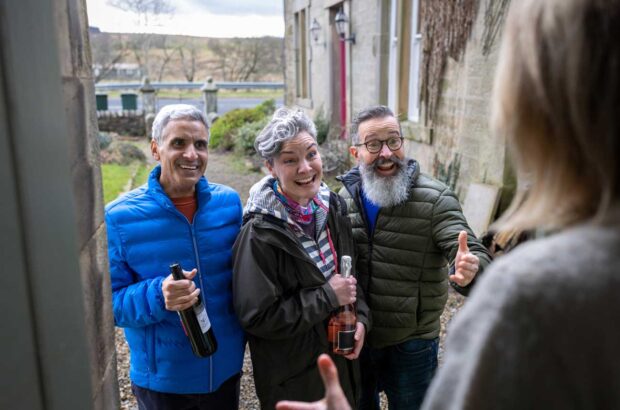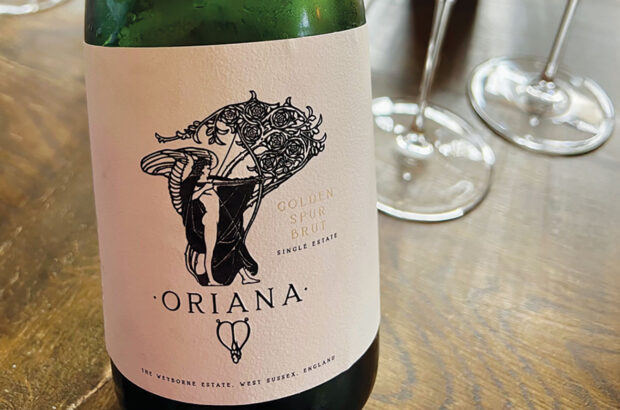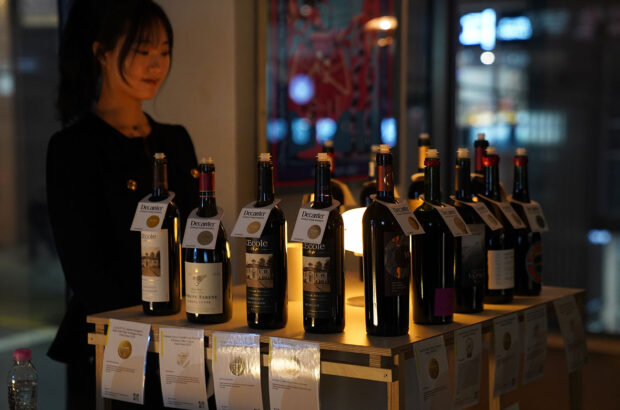See both sides of the debate as to whether organic viticulture is possible or not, as taken from the 'burning question' in Decanter's February 2014 issue....
A biodynamic winemaker in Beaune has been threatened with a €30,000 fine and six months in prison for not spraying his vines to protect against a disease that some believe carries a similar threat level to phylloxera.
Emmanuel Giboulot is being prosecuted by a local arm of France’s agriculture ministry for not following a Côte d’Or-wide directive to systematically treat vines against the infectious disease flavescence dorée.
Caused by a leaf-hopping insect known as scaphoideus titanus, the disease has affected vineyards across France. It was first spotted in Burgundy in 2011.
Giboulot was served with a notification to appear before the Dijon Tribunal on 10 November, for ‘failure to apply an insecticide treatment to his vineyard…to prevent the installation of flavescence dorée vine disease’. Giboulot was unable to attend and, at the time of writing, was awaiting a new hearing date.
‘My father began converting to organic farming in the 1970s, and we are now fully organic and biodynamic,’ he said. ‘I don’t want to undo decades of work by applying a treatment where its effects on the health of the vines, and the public, are as yet unproved.’
Jean-Michel Aubinal, president of the regional appellations body, drew attention to the urgency of the flavescence dorée problem. ‘The disease is still affecting Burgundy. We are currently creating a picture of the exact health of the vines, pulling up vines where we need to.
‘In 2012, we pulled up 12 hectares in the Mâconnais, which is not a huge amount, but you have to be very reactive in the fight against this disease, and not let it spread.’
Is Giboulot right to resist, or is this an example of someone prioritising principles without due regard for the wider consequences? Are we becoming too complacent about disease in the vineyard?
Is organic viticulture irresponsible? – Yes
It is ‘more than acceptable’ and ‘definitely’ necessary to use insecticide spray against diseases like this, at least for the time being, according to Denis Thiery, research director at the Bordeaux, Aquitaine branch of national research institute INRA.
‘This is a national policy against an epidemic, and it should be respected,’ he said, commenting on flavescence dorée. He said that spraying vines is the ‘only solution unless more direct methods against the pathogen itself can be applied’. Research is underway to find alternative ways of treating and mitigating this particular disease.
‘Is there a risk in applying this treatment?’ said Pascal Chatonnet, a Bordeaux winemaker and researcher who has run several studies into pesticide use in vineyards. ‘Yes, because the proscribed molecules are highly aggressive. I fully understand Giboulot’s hesitation. But the alternative treatments have not yet proved their effectiveness over the long term.’
Guillaume Halley, owner of Château de La Dauphine in Fronsac and a strong supporter of organic winemaking, said that he couldn’t make a judgement on Giboulot specifically, but he said flavescence dorée should not be underestimated. ‘All winegrowers remember the phylloxera crisis, and this represents the same kind of threat.’
Is organic viticulture irresponsible? – No
Giboulot has rejected suggestions that he is acting out of turn. ‘I am not irresponsible,’ he told Decanter. ‘And I am not trying to be radical. I simply do not believe that systematic treatment – even without any symptoms of the disease – is the solution.’
On flavescence dorée, Olivier Humbrecht, president of biodynamic growers’ association Biodyvin, said, ‘at the moment, most organic and biodynamic growers buy the insecticide, but the few that have not are unfairly being prosecuted’.
Sympathy also came from Neil Palmer, co-founder and director of UK organic wine merchant Vintage Roots. While Palmer emphasised that he does not know the full details of Giboulot’s case, he argued that, if the Beaune winemaker has an alternative method of dealing with the problem, he should ‘at least be allowed to try it’.
He added, ‘Thank goodness we’re not forced by law to have vaccinations; similarly organic producers should have the right not to spray toxic chemicals on their land’. Palmer advised caution in the use of pesticides and insecticides. ‘If we extend the chemical theory to its ultimate extreme, then all land, everywhere, would need spraying with x,y,z to either treat or prevent “diseases”.’







